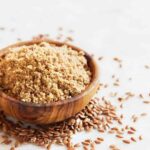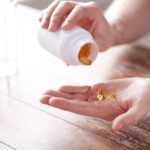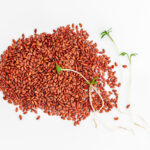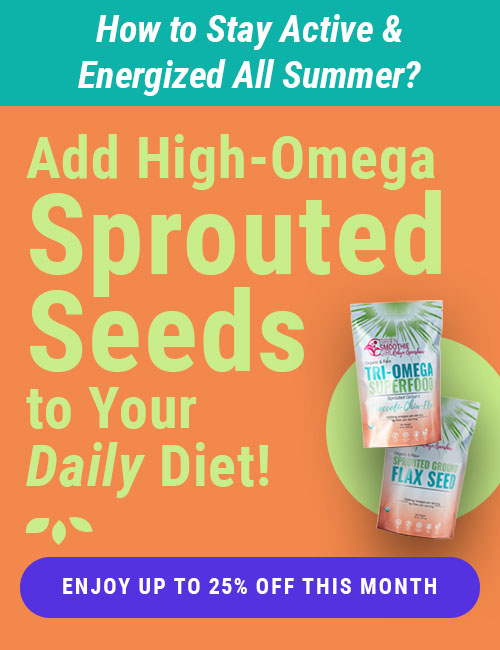Protein
Are We Deficient? Or Overdosing?
Myth: “People need 20% protein—and animal protein is best.”
The idea that beef, chicken, fish and other animal products are the “best” source of protein is ingrained in the American psyche because of very successful work on the part of the multibillion-dollar cattle and dairy industries. They have immeasurable help from the fact that bodybuilders can show impressive bulk as a result of eating “quality” animal proteins. The plant protein source is, in fact, superior.
Vegetables Have Protein?
People are surprised to learn that vegetables have plenty of protein.
Vegetables tend to have 9-10 percent protein. (Broccoli and spinach, however, have more than 40 percent protein. And some of the best green sources of protein on the planet are spirulina and chlorella algaes, with 58-60 percent protein.)
The China Study
Colin Campbell’s animal studies in The China Study, and then his largest human nutrition study ever conducted, documented that a 20 percent animal protein diet leads to all the modern degenerative diseases.
Campbell noted that rats fed 20 percent casein (cow-milk protein) developed cancerous tumors and died early, while those fed 5 percent casein were lean and vigorous beyond their life expectancy. When the diets of the two groups were switched, Campbell and other researchers around the world repeatedly got consistent results. Formerly lean animals developed tumors and died on a high-protein diet. And the tumors of overweight, cancer-ridden animals disappeared and life expectancy increased when they were switched to low-protein feed.
I used to lease a Pharmanex Biophotonic Scanner, and in the course of a year scanned 10,000 people nationwide for the carotenoid antioxidant levels in their skin, which is the nutritional endpoint of the body. The average American scans at 20,000. I scan at 70,000, which is above the 99th percentile and off the top end of the chart (as you would expect, virtually all raw foodists I measured scan at 50,000 or above). I scanned cancer patients who were below 10,000 (and we therefore could not get a reading). And despite doing a lot of work in gyms, I never once scanned a bodybuilder even as high as the national average! They were, on average, not much higher than the cancer patients. Their animal-protein diets may create a bulked-up appearance, but I’m more concerned about their long-term health.
The China Study’s conclusion was that Americans are actually suffering from massive protein overload. My cancer research is yielding conclusions of a variety of experts in orthomolecular medicine (utilizing nutrition) including the Gerson Institute and the Ann Wigmore Institute that undigested animal proteins in the gut and in the bloodstream, are at the root of cancer, heart disease, and auto-immune diseases. We simply cannot digest all the protein we flood our systems with. Minimizing carbs and maximizing protein is nothing more or better than a fad—and it’s a damaging one.
Even the World Health Organization states that 5 percent protein is actually ideal. In order to achieve the 20 percent pushed on us by food faddists Robert Atkins, Barry Sears, South Beach Diet, etc., we have to eat lots of animals (it takes 20 lbs. of plants to produce 1 lb. of animal flesh) or eat highly processed, synthetic vitamin-fortified low-nutrition whey or soy protein powders and bars.
But I know someone who’s vegan and they’re not healthy!
People often say they know sickly vegans to justify daily meat eating as a good lifestyle choice. But of course, not all vegans eat good nutrition: they don’t eat meat, but they might eat cotton candy for breakfast! Have you ever seen a sickly gorilla? He eats plants all day.
A “quality” protein or “perfect” protein (animal flesh that matches human flesh closely) isn’t the same thing as “good” protein, as Campbell discusses extensively in The China Study. Your body can assemble all the amino acids from a plant protein source to create more quality muscle mass that does not break down quickly like that in heavy-meat-eating athletes.
Perhaps the proof is in the (dairy free, of course) pudding. At 40, I have bone density in the highest percentage category—comparable to a 20-yr. old. My diet has been less than 5 percent animal protein my entire life. I have never drunk a glass of cow milk. (And according to blood and metabolic typing, as well as according to my ethnic origins, I’m a “protein type.” While we do vary somewhat, individually, in our nutritional needs, before you become a “nutritional typing” adherent, remember that these are interesting but new, fairly untested fads in nutrition propagated by a charismatic few.)
Americans have been falsely educated into thinking they won’t get enough protein if they don’t eat meat. In the 1900’s, it was thought that people needed 120 grams of protein daily. In the 90?s, nutritionists recommended about 80 grams a day. Newer research shows we need only about 25 grams.
Clinical Studies
A clinical study in the Journal of the American Dietetic Association compared amino acids (the building blocks of proteins) in the diets of meat eaters, vegetarians, and vegans. They used a high standard that would cover the needs of pregnant women and growing children. All three diets provided MORE than enough protein, by double or more!
Other studies document that Americans are getting 150% to 400% more protein than they need. You can certainly eat plenty of dairy products (high in calcium) and have a calcium deficiency. How else are we the highest dairy-consuming nation in the world (by double the next-highest country) and also have the highest rate of osteoporosis? Fully half of us over the age of 60 get osteoporosis—and I believe that this already high number will grow dramatically as our soda-drinking youth age. The massive amount of animal protein we eat causes such an acidic state in the body that calcium from the bones is robbed in order to bring the blood and tissues into alkaline balance.
What about Body Building & Powerlifting?
I seem to keep having conversations with powerlifter friends about this topic. I can be pretty persuasive, but getting competitive weight lifters to consider eating less meat and more plant food is like trying to tell a Catholic priest to quit going to Mass. What powerlifters do to build up huge pecs, lats, biceps and triceps muscles might win competitions, but it also accelerates aging, as well as disease risk. This week my friend Roy (who maxes the bench press with 455 lbs.) told me he’s on a 60% protein diet. While he’s thinking of his upcoming competition and fearing the ungodly carbohydrate, I’m thinking of the massive enzyme-draining load on his body.
[product id=”5232″]Stephen Arlin, author of Raw Power!, is a 17-yr. vegan raw-foodist, as well as a rocked-up, 6’2”, 225-lb. bodybuilder. Bill Pearl is a vegetarian who won four Mr. Universe bodybuilder titles. Arnold Schwarzenegger said, “Bill Pearl never talked me into becoming a vegetarian, but he did convince me that a vegetarian could become a champion body builder.”
I inadvertently put Stephen Arlin’s theory and observation that plant-based muscle mass is more enduring to the test recently. I peeled a tendon off my shoulder kickboxing and was forced to take a nine-month break from all weight training while rehabilitating. When I returned (having eaten my long-time, vegetable-intensive and animal-products-minimal diet), I was able to lift my original weight within two weeks and had lost no visible muscle definition.
Protein Facts
Animal flesh and animal products may lead to quick muscle mass, but eating lots of animal flesh is a Faustian bargain: short-term gain for a steep long-term price. Protein powders and bars are a fad designed to increase protein intake beyond healthy ratios. A plant protein source is best and leads to long-lasting, slower-to-build but slower-to-degenerate muscle mass. A typical American 20 percent animal protein diet is linked to cancer, heart disease, autoimmune diseases, and many more risks.
Want to add more protein to your diet?
I hope you don’t eat highly processed animal-product whey protein. Avoid endocrine-disrupting soy protein too! This fabulous protein powder packed 11 lbs. of muscle on my 17-y.o. son in just 7 months. It’s live, sprouted, highly nutritious,—and it’s silky smooth and tastes great.
[product_category category=”vegan-protein-powder” per_page=”12″ columns=”4″ orderby=”menu_order”]













